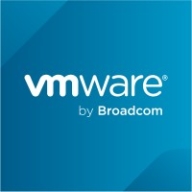

IBM Db2 Database and VMware Tanzu Data Solutions compete in the database market, offering distinct features that cater to specific user needs. IBM Db2 holds an advantage in SQL functionality and platform versatility, while VMware Tanzu excels with its scale-out architecture suitable for cloud-native and big data environments.
Features: IBM Db2 Database boasts strong SQL capabilities, comprehensive platform support including Java, and self-tuning memory management for optimal performance. VMware Tanzu Data Solutions provides robust support for massive parallel processing, is cloud-native, and benefits from an open-source model, making it cost-effective.
Room for Improvement: IBM Db2 users face challenges with its complexity, especially in learning and administration, and express a desire for better performance monitoring and web enablement tools. VMware Tanzu users seek improved support documentation, ease of deployment in complex environments, and more stability under heavy loads.
Ease of Deployment and Customer Service: IBM Db2 excels in on-premises deployment with strong customer service, though response times can vary. Its hybrid cloud deployment is less common. VMware Tanzu offers flexible deployment options on hybrid and public clouds, but users cite deployment and support as needing enhancements.
Pricing and ROI: IBM Db2 is often perceived as costly, but users find value in its integration with IBM products and reliability. Licensing strategies can reduce costs, though they are sometimes seen as complicated. VMware Tanzu’s open-source nature provides a low-cost solution upfront, appealing for large-scale deployments, with significant ROI for cost-conscious buyers.
I have seen a return on investment with VMware Tanzu Data Solutions because of its speed and the robustness of the environment.
We normally receive substantial discounts on the price.
Customer support for VMware Tanzu Data Solutions has been good with me and with VMware, including Broadcasts.
Most of our functions or jobs are queued due to that.
I have faced stability issues, mainly due to the storage my organization has, though I am not sure if it's specifically due to the tool.
It might be slightly slower than other database vendors, but it works well since banks typically do not move quickly with leading-edge technology.
VMware Tanzu Data Solutions can be improved as it is better and faster for administration and clusters, Dockers, and Kubernetes.
My experience with pricing, setup cost, and licensing for VMware Tanzu Data Solutions is that it is a bit expensive.
IBM Db2 Database, because of enterprise performance and support, is why banks still maintain their relationship with it.
The IBM Db2 Database is trusted, and IT effort is less than any other product.
The principal aspect is the creation of Kubernetes clusters.
The product is not complex; I do not have to create stored procedures, functions, or views.
| Product | Market Share (%) |
|---|---|
| IBM Db2 Database | 6.6% |
| VMware Tanzu Data Solutions | 0.8% |
| Other | 92.6% |

| Company Size | Count |
|---|---|
| Small Business | 20 |
| Midsize Enterprise | 13 |
| Large Enterprise | 48 |
| Company Size | Count |
|---|---|
| Small Business | 30 |
| Midsize Enterprise | 10 |
| Large Enterprise | 49 |
VMware Tanzu is a robust platform tailored for data warehousing, complex analytics, BI applications, and predictive analytics. It excels in scalability, performance, and parallel processing, enhancing data handling efficiency. Users report significant productivity improvements and streamlined operations, making it ideal for comprehensive data solutions.
We monitor all Relational Databases Tools reviews to prevent fraudulent reviews and keep review quality high. We do not post reviews by company employees or direct competitors. We validate each review for authenticity via cross-reference with LinkedIn, and personal follow-up with the reviewer when necessary.